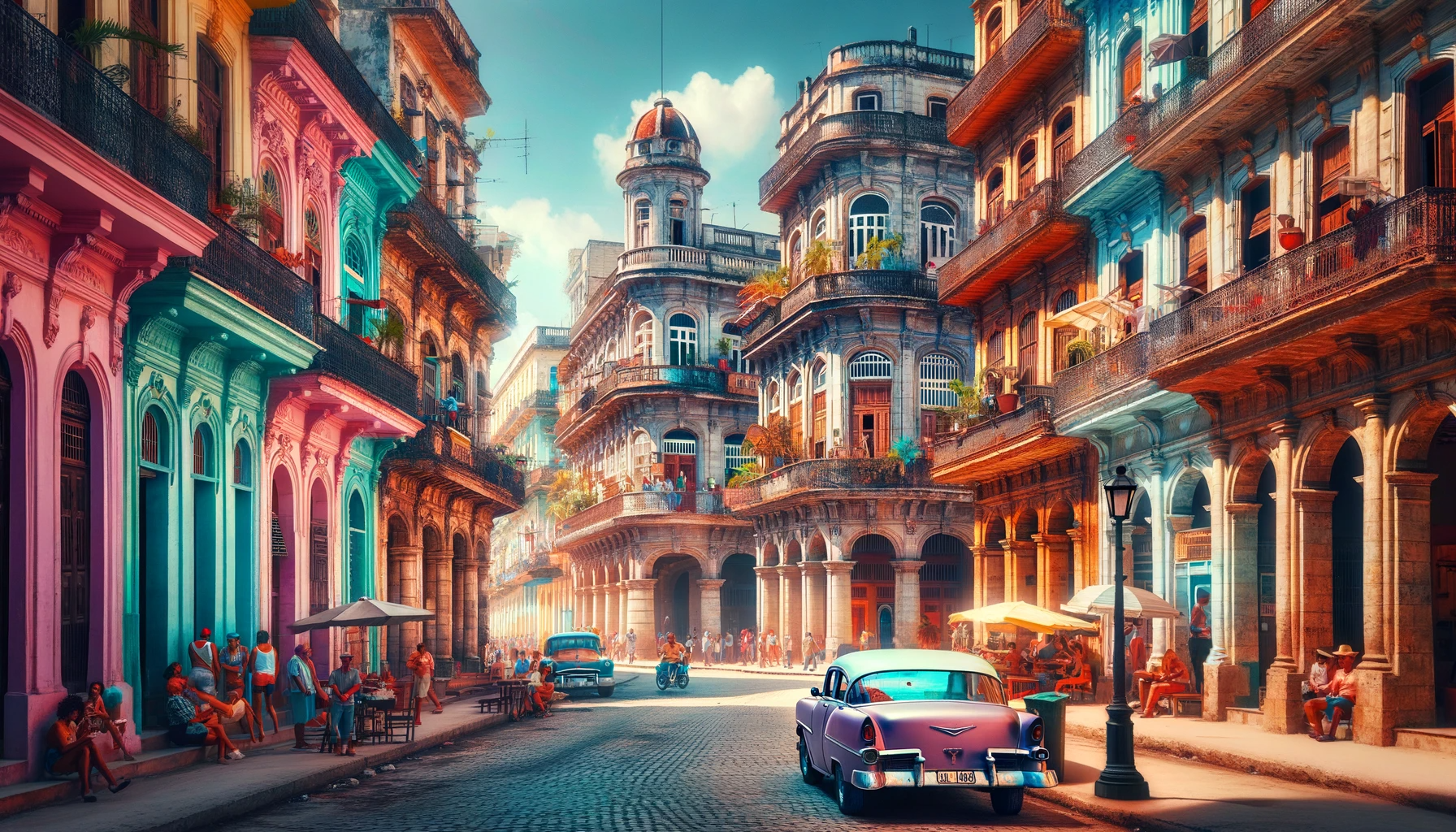Cuba is a captivating blend of the old and new, known for its rich history, vibrant culture, stunning natural beauty, and beautiful beaches. Havana, the capital, is famous for its pastel houses, 1950s-era cars, and Spanish colonial architecture, particularly in the historic core of Old Havana. Cuban music and dance, like salsa, are renowned worldwide. The legacy of its revolutionary past adds to its unique charm. With its beautiful beaches and tobacco fields, Cuba is a must-visit destination.
List of Public Holidays for Cuba in 2024
- Liberation Day: Monday, 1 January 2024
- Victory Day: Tuesday, 2 January 2024
- Good Friday: Friday, 29 March 2024
- Labour Day: Wednesday, 1 May 2024
- National Revolutionary Holiday: Thursday, 25 July 2024
- 2. National Revolutionary Day: Friday, 26 July 2024
- 3. National Revolutionary Holiday: Saturday, 27 July 2024
- Independence Day: Thursday, 10 October 2024
- Christmas Day: Wednesday, 25 December 2024
- New Year’s Eve: Tuesday, 31 December 2024
Cuba: A Land of Vibrant Culture, Revolutionary History, and Caribbean Charm

Introduction
Cuba, the largest island in the Caribbean, is an amazing country with a rich cultural tapestry, shaped by its revolutionary history and distinctive Caribbean spirit. You’ll be fascinated by its vintage cars, vibrant music, and historic architecture. Cuba is a country with a unique identity that you won’t find anywhere else.
Historical Overview
Cuba’s history is a compelling narrative of colonial conquest, African slave trade, and its pivotal role in the Cold War era. The Cuban Revolution of 1959, led by Fidel Castro, transformed its political and social landscape, establishing a communist government that has influenced Cuba’s path ever since.
Geographical Beauty
The island boasts a variety of landscapes, ranging from the bustling energy of Havana to the tranquil allure of Viñales Valley. Its tropical climate, pristine beaches, and verdant mountains form a stunning backdrop that draws tourists from all corners of the globe.
Cultural Richness
Cuban culture is an incredibly vibrant fusion of Spanish, African, and Caribbean influences. Music and dance, especially styles like salsa, son, and rumba, are absolutely integral to Cuban life. Additionally, the country boasts world-class cigars, rum, and a rich culinary tradition that is sure to delight any foodie.
Economic Landscape
Cuba’s economy is largely state-controlled, shaped by decades of US sanctions and the collapse of the Soviet Union. With these positive developments, Cuba’s economy is poised for growth and expansion. Key sectors such as tourism, agriculture, and healthcare continue to thrive. However, economic reforms and international tourism are slowly diversifying its economy.
Political Framework
Cuba’s political system is defined by one-party rule, as it remains one of the few remaining communist states. However, the country has undergone significant political changes since the revolution, including the recent transition of leadership from the Castro family. We can confidently say that Cuba’s political landscape has evolved over time, and we can expect further changes in the future.
Society and Lifestyle
Cuban society is renowned for its resilience and community spirit. Despite economic challenges, Cubans take great pride in their cultural identity. Moreover, the country has achieved high literacy rates and boasts an effective healthcare system.
Environmental Commitment
Cuba is a country that takes environmental protection and sustainable development seriously. Its ecosystems are well-preserved, and its commitment to organic farming is a testament to these efforts.
Tourism and Heritage
Cuba’s tourism industry is a crucial component of its economy, highlighting its colonial cities, lively arts scene, and stunning beaches. Heritage sites such as Old Havana and Trinidad provide a window into Cuba’s colonial history.
Arts and Expression
Cuban art and literature reflect its social and political narratives. The country has a thriving arts scene, with numerous galleries, festivals, and a rich tradition in literature, cinema, and visual arts.
Societal Challenges
Cuba is confidently navigating numerous challenges, including economic constraints, the need for political reform, and maintaining social services, all while retaining its unique cultural identity and socialist principles.
Global Relations
Cuba’s foreign relations have been historically shaped by its alignment with socialist countries and tense relations with the United States. It continues to foster relationships with various global partners, focusing on solidarity and mutual development.
Conclusion
Cuba is a nation of contrasts, where revolutionary history intertwines with cultural vibrancy and Caribbean beauty. As it moves towards the future, Cuba remains a fascinating blend of past and present, revolution and rhythm.

